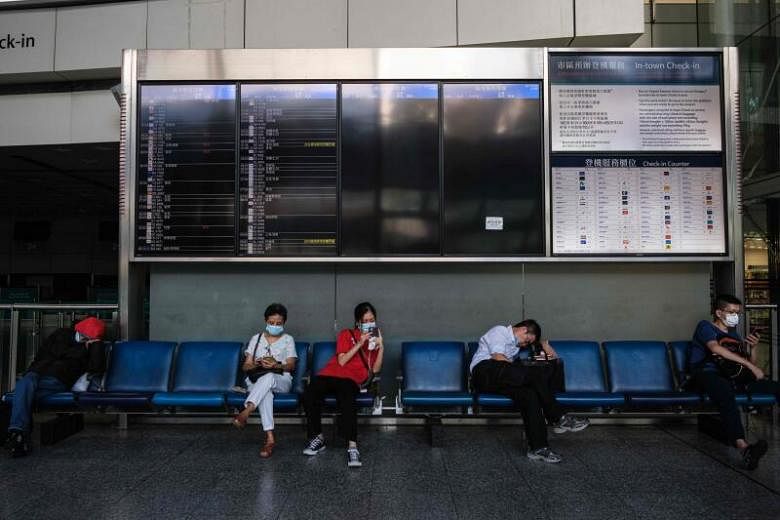HONG KONG • A Hong Kong man who recovered from Covid-19 was infected again 41/2 months later in the first documented instance of human re-infection, researchers at the University of Hong Kong have said.
The findings indicate that the disease, which has killed more than 800,000 people worldwide, may continue to spread among the global population despite herd immunity, they said yesterday.
The 33-year-old male was cleared of Covid-19 and discharged from a hospital in April, but tested positive again after returning from Spain via Britain on Aug 15.
The patient had appeared to be previously healthy, researchers said in the paper, which was accepted by the international medical journal Clinical Infectious Diseases.
He was found to have contracted a different coronavirus strain from the one he had previously contracted, and remained asymptomatic for the second infection.
"The finding does not mean taking vaccines will be useless," Dr Kai-Wang To, one of the leading authors of the paper, told Reuters.
"Immunity induced by vaccination can be different from those induced by natural infection," Dr To said, adding that the effectiveness of vaccines will be known only after results of vaccine trials are out.
World Health Organisation epidemiologist Maria Van Kerkhove said yesterday there was no need to jump to any conclusions in response to the Hong Kong case.
Instances of people discharged from hospitals and testing positive again for Covid-19 infection have been reported in mainland China.
However, in those cases, it was not clear whether they had contracted the virus again after full recovery - as happened to the Hong Kong patient - or still had the virus in their body from the initial infection.
The preliminary number of patients in China who tested positive again once being discharged from hospital was between 5 per cent and 15 per cent, Dr Wang Guiqiang, an infectious disease specialist in China's expert group for Covid-19 treatment, said during a press briefing in May.
One explanation was that the virus still existed in the lungs of patients but was not detected in samples taken from upper parts of the respiratory tract, he said.
Other possible causes were low sensitivity of tests and weak immunity that could lead to persistent positive results, he added.
Dr Jeffrey Barrett, an expert and consultant with the Covid-19 Genome Project at Britain's Wellcome Sanger Institute, told Reuters that it was very hard to make any strong inference from a single observation.
"Given the number of global infections to date, seeing one case of re-infection is not that surprising even if it is a very rare occurrence," he said.
Hong Kong yesterday reported seven local cases, of which four are of unknown origin. It was the first time the city reported single-digit daily cases since the latest wave began early last month. The city also found two imported cases, bringing the total number of cases to 4,691.
REUTERS, BLOOMBERG

